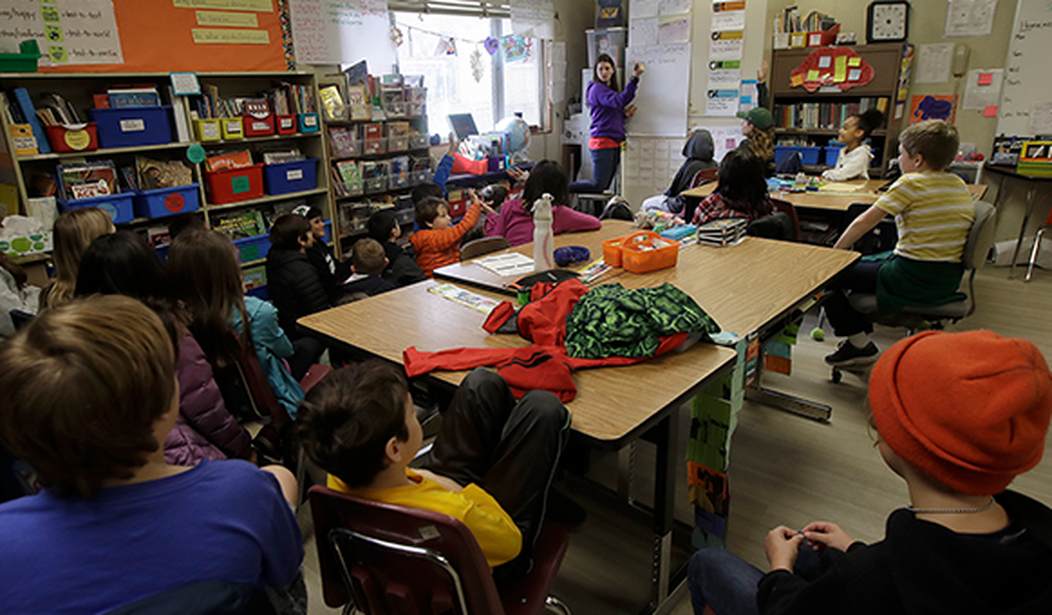Congress and the Trump administration are considering another relief bill to help the country through the ongoing pandemic, and with thoughts about school openings weighing on many Americans’ minds, education funding is becoming a focal point.
Public school advocacy groups have requested more than $200 billion in COVID relief funding. State and local budgets are under serious financial strain, and certainly some robust level of funding is warranted.
Parochial and private schools have similar challenges that are complicated further by their own circumstances. Many of the families these schools serve are struggling financially and re-enrollment levels are correspondingly down. These schools educate 10 percent of the nation’s Pre-K through 12 enrollment, and the families they serve should be part of any relief legislation from Congress in proportion to their share of enrollment.
At least 60 percent of parochial and private school students come from low-income, working class and middle-income families who make a substantial financial sacrifice for the best, most suitable education for their child. But the economic fallout from the pandemic has taken its toll on these non-wealthy families who are most vulnerable, which requires curtailing expenses.
Many of these vulnerable families making the financial sacrifice to provide a religious education for their children are black, Hispanic or new immigrants. In Catholic schools, for example, more than 21 percent of the students are racial minorities, most of whom are Hispanic.
Recommended
It is these minority children, however, who comprise a much higher percentage of scholarship recipients. For example, the Children’s Scholarship Fund network awards 26,000 scholarships to children from low-income families throughout the nation to attend private schools. In New York City alone, Hispanic students comprise 51 percent of the scholarship recipients.
Ironically, it is these lower-income families with children in private schools who are generating savings to taxpayers by making the personal sacrifice to provide their children a religious or private education. As more of these low-income, working class and middle-income families lose this financial struggle to pay tuition, state and local taxpayers must absorb the higher costs of the influx more students in public school.
With nearly 5 million students in religious and secular private schools, public school taxpayers save more than $70 billion annually.
Funding for K-12 scholarships in the next pandemic relief bill by Congress would significantly benefit Hispanic and black students, who comprise a disproportionate number of lower-income enrollment. Absent this support from Congress, private and religious schools will increasingly become the option of the wealthy, with lower percentages of minority students.
Should the children of wealthy families be the only ones to benefit from religious and other private schools? That is the direction we are heading as a nation and it is being accelerated by the sharp economic downturn caused by the COVID-19 pandemic.
Beyond the immediate funding needs of non-public school families, especially minority families, Congress also should pass the Trump administration’s proposal for Education Freedom Scholarships. Doing so will provide long term stability for lower income families to access educational options that the wealthy have already.
Specifically, the administration’s scholarship proposal would provide federal income and corporate tax credits for charitable donations made to K-12 non-profit scholarship funds. This enhanced tax incentive would encourage more donations to generate more scholarship money to reach more students, especially in high-needs communities, which are the focus of many existing scholarship entities.
Education, including parochial and private education, should not be a partisan issue. The pandemic and economic downturn has affected all students, regardless of where they attend school. The coronavirus does not discriminate between public and non-public schools, religious or secular, and neither should Congress when it comes to allocating funding and helping students.
Members of Congress are under pressure to exclude their constituents in parochial and private schools, as though somehow making sure the students in these schools are treated fairly is detrimental to public schools. But education is not a zero-sum, us-versus-them issue.
Students in both public and non-public schools deserve support, especially during this public health and economic emergency. Congress can show that support by ensuring the educational needs of all children are addressed in the next relief bill this summer.
Mario H. Lopez is president of the Hispanic Leadership Fund, a non-partisan advocacy organization dedicated to strengthening working families by promoting common-sense public policy solutions that foster individual liberty, opportunity and prosperity.
























Join the conversation as a VIP Member